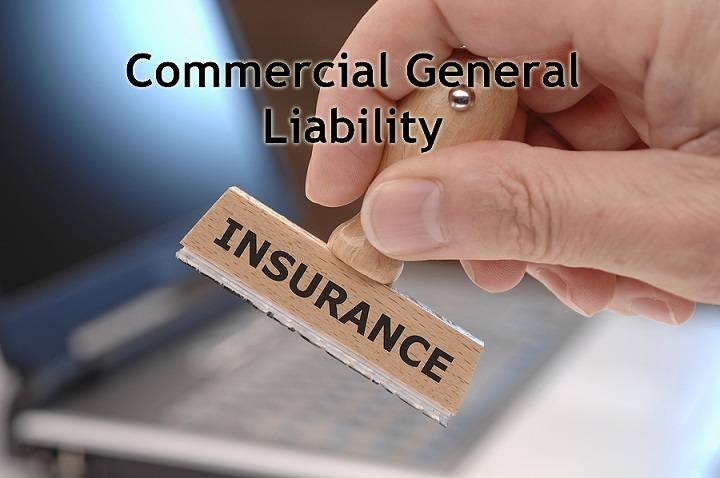When you run a business, you’re constantly juggling various responsibilities, from managing your team to dealing with clients and suppliers. Amidst all this, it’s essential to protect your company from unforeseen risks and potential legal disputes. That’s where general liability business insurance comes into play. In this comprehensive guide, we’ll delve into the world of general liability insurance, covering everything from its definition to its benefits, costs, and how to get the best coverage for your specific needs.
What is General Liability Business Insurance?
General liability insurance, often referred to as commercial general liability (CGL) insurance, is a crucial component of your business’s risk management strategy. It provides coverage for your company against claims of bodily injury, property damage, and personal injury that may arise during your business operations. These claims can be the result of accidents or incidents that occur on your premises or as a result of your products or services.
Key Points to Remember
- General liability business insurance safeguards your company against claims of bodily injury, property damage, and personal injury.
- It covers accidents or incidents that occur on your business premises or are associated with your products or services.
Benefits of General Liability Insurance
1. Protection Against Legal Claims
One of the primary advantages of general liability insurance is that it shields your business from the financial repercussions of legal claims. If a customer or third party files a lawsuit alleging bodily injury or property damage caused by your business, your insurance will help cover the costs of legal defense and any settlements or judgments.
2. Peace of Mind
Knowing that you have general liability insurance in place provides peace of mind. It allows you to focus on growing your business without constantly worrying about potential lawsuits that could threaten your company’s financial stability.
3. Risk Mitigation
This insurance also plays a vital role in risk mitigation. It helps protect your business’s assets and reputation, ensuring that you can continue your operations even when faced with legal challenges.
4. Client Trust
Having general liability insurance can enhance your credibility and build trust with clients. Many clients prefer to work with businesses that are adequately insured, as it reflects a commitment to professionalism and accountability.
5. Compliance with Contracts
In some cases, clients or partners may require you to have general liability insurance as a condition of doing business with them. By having this coverage, you can fulfill such contractual obligations.
Understanding the Costs
General liability insurance costs can vary significantly depending on several factors, including:
1. Business Type
The nature of your business plays a significant role in determining your insurance costs. High-risk industries, such as construction or healthcare, tend to have higher premiums compared to low-risk businesses like consulting or software development.
2. Coverage Limits
The extent of coverage you choose will directly impact your premiums. Higher coverage limits will result in higher premiums, but they also provide more protection in the event of a claim.
3. Location
Your business’s location matters because insurance costs can vary by state and even by city. Factors such as local regulations and the cost of living affect premiums.
4. Deductible
The deductible is the amount you’re responsible for paying before your insurance coverage kicks in. A higher deductible can lower your premium, but you should be prepared to cover more costs out of pocket if a claim arises.
5. Claims History
Your claims history also affects your insurance costs. If you have a history of frequent claims, your premiums may be higher.
6. Annual Revenue
Your business’s annual revenue is considered when determining your premium. A higher revenue may lead to higher premiums.
How to Get the Best Coverage
When it comes to obtaining the best general liability business insurance coverage, consider the following steps:
1. Assess Your Business Needs
Start by evaluating your business’s specific risks and requirements. Understand what types of incidents or accidents are most likely to occur in your industry.
2. Compare Quotes
Request quotes from multiple insurance providers. This allows you to compare coverage options and costs to find the most suitable policy for your budget.
3. Work with an Insurance Broker
An insurance broker can be a valuable resource in helping you navigate the complexities of insurance policies. They can provide expert advice and help you find the right coverage.
4. Review Policy Exclusions
Carefully read through the policy terms and exclusions. Make sure you understand what is covered and what is not. If needed, negotiate changes to the policy to better align with your business’s needs.
5. Bundle Policies
Consider bundling general liability insurance with other types of business insurance, such as property insurance or workers’ compensation. Bundling can often lead to cost savings.
6. Stay Informed
Keep yourself updated on changes in your business operations and industry. Regularly review and adjust your insurance coverage as your business evolves.
General liability business insurance is a fundamental element of any business’s risk management strategy. It offers protection against legal claims, provides peace of mind, and helps mitigate risks. Understanding the costs involved and following the steps to secure the best coverage will ensure that your business is well-prepared to handle unexpected challenges. Don’t wait until it’s too late; invest in general liability insurance to safeguard your company’s future.



